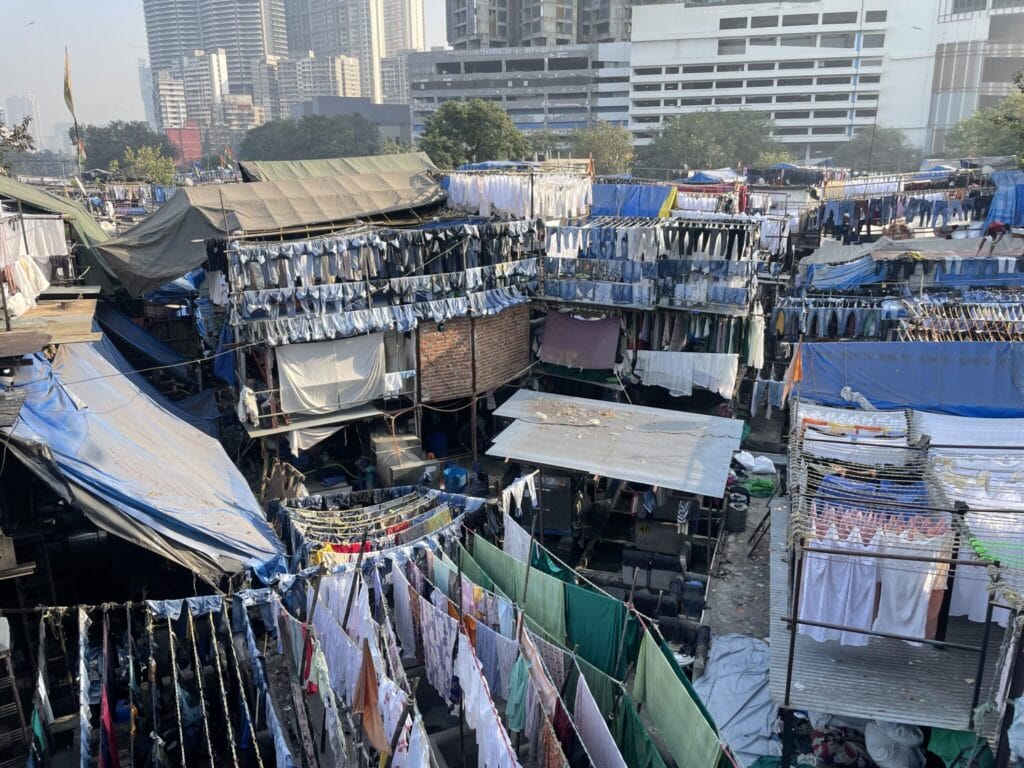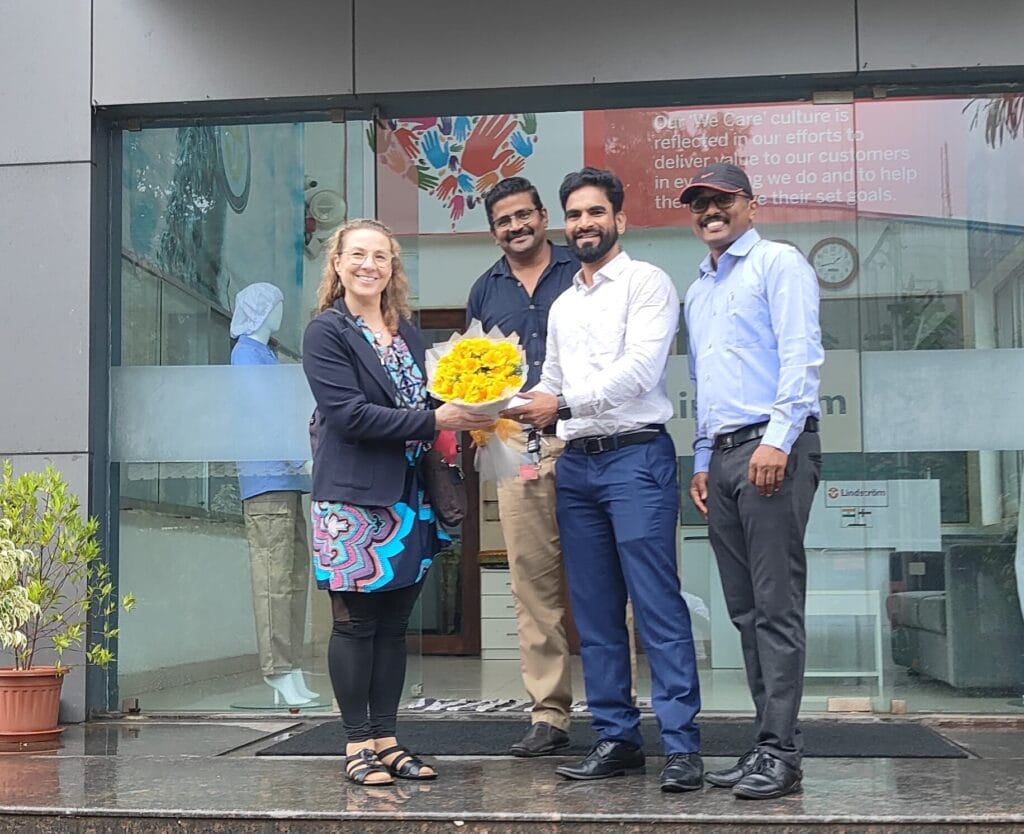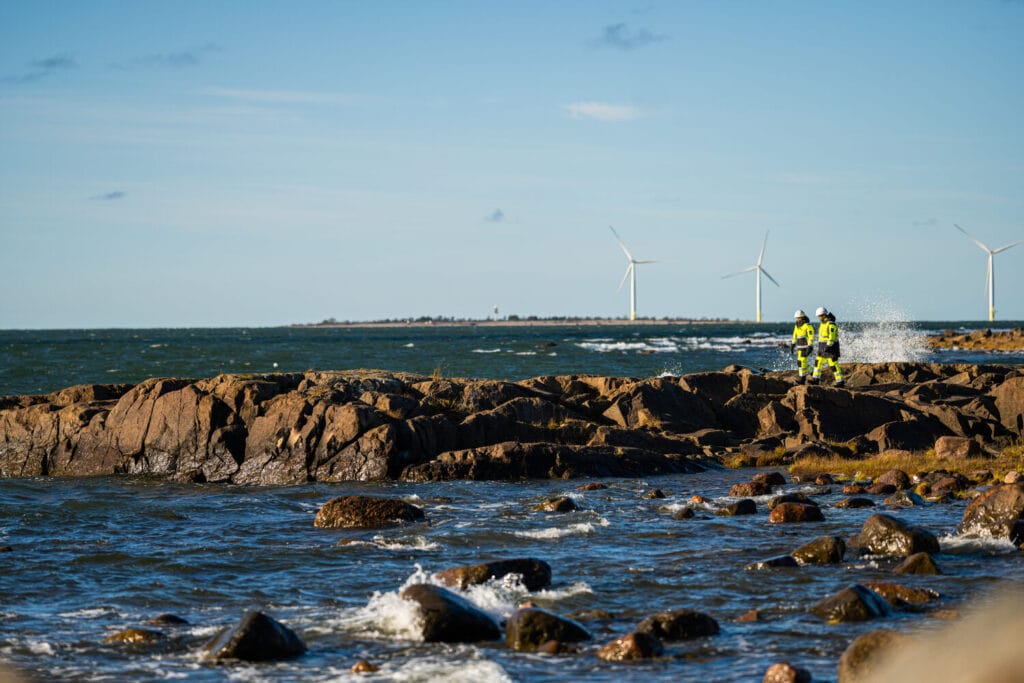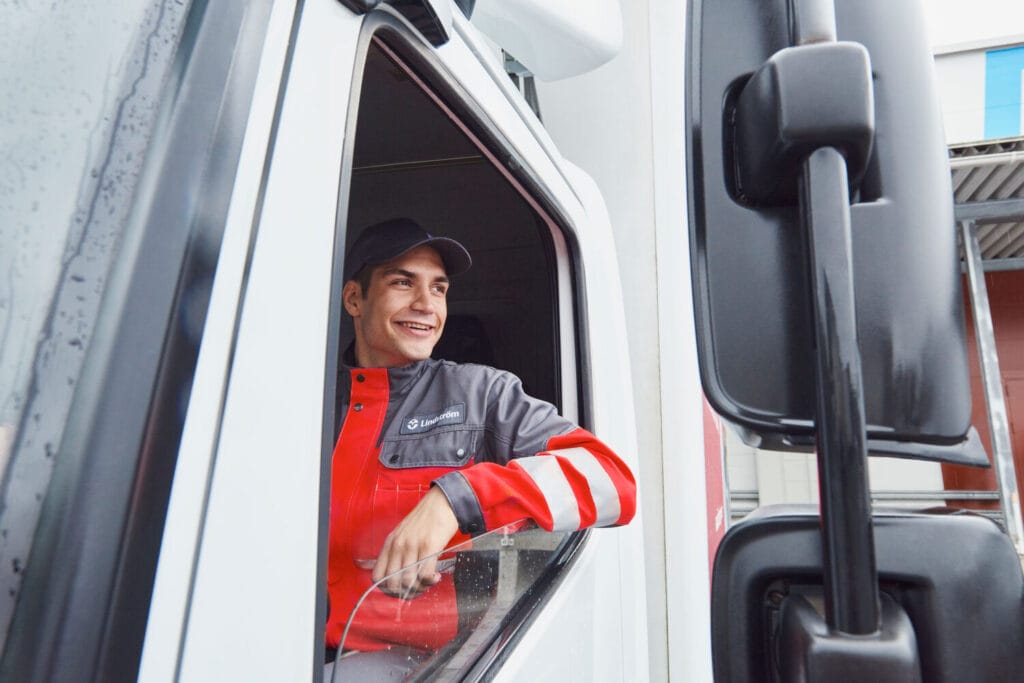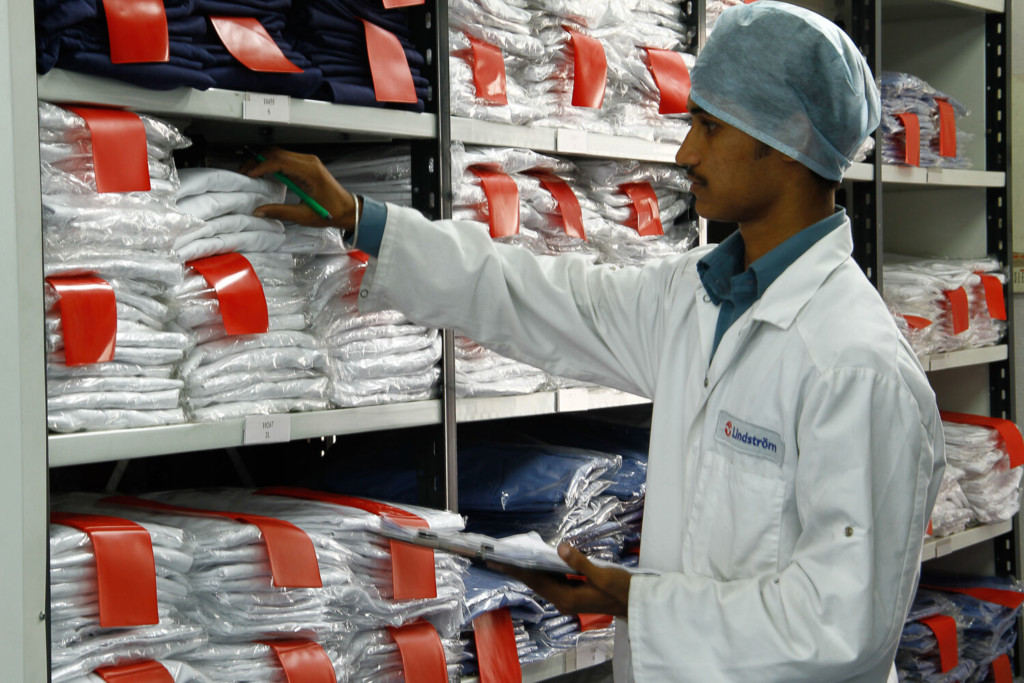
Working with local organisation and partners: An inspiring trip to India
Ulla Luhtasela, Sustainability Director:
In today’s world, sustainability should be woven into all operations across different countries, sites, and throughout the value chain. Ensuring our practices are eco-friendly and uphold the highest standards of human rights is crucial for the long-term success and integrity. As a new Sustainability Director at Lindström, I needed to witness our commitments firsthand and to step out of the “Head Office bubble” during onboarding.
Experiencing our operations in India
India is one of the key growth markets for our business, and certainly not a country where sustainability can be taken for granted. Cultural differences are obvious compared to Finland, where I am based. Therefore, I was excited to make India as my first long-haul destination. Having never been to India before, it was particularly important for me to experience in person how we do business in this interesting market.
Overall, my trip was nothing short of amazing. I visited four of our workwear and cleanroom laundry sites in Delhi, Chennai, Pune, and Mumbai. In the latter, I also visited our unique “production on demand” facility, PRODEM. It enables small, customer-specific workwear production, preventing overproduction.
First of all, I was very pleased to see how Lindström’s “We Care culture” was visible in everyday life at our sites. The commitment to the quality of our services and the safety and wellbeing of employees was evident. It was amazing to see textiles being repaired on all sites; with textile care workers actively using sewing machines and contributing to the nearly five million pieces of textiles we annually repair globally.
Secondly, as we operate in water stress areas, I was keen to learn more about water recycling. In Chennai and Pune, our experts shared with me how we purify the used water coming from our laundries with several techniques and reuse it again. We want to expand these techniques and learnings to our other regional sites, as water is in focus for the 2030 strategy period. Therefore, understanding our opportunities, limitations, and alternatives was valuable for me.
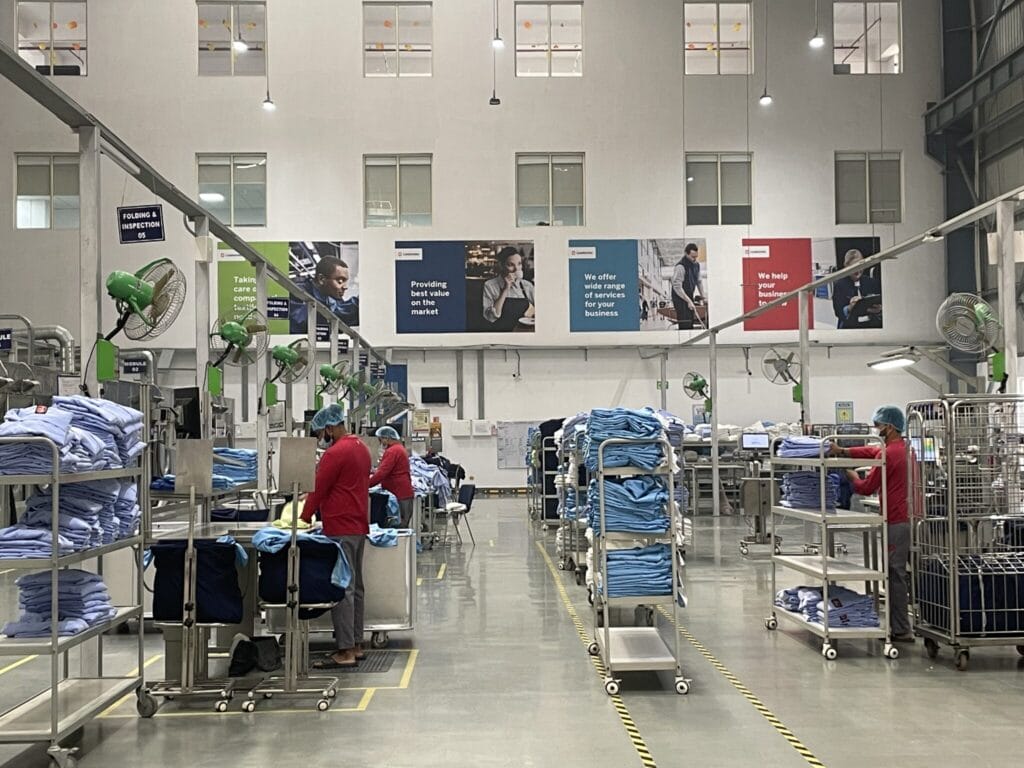
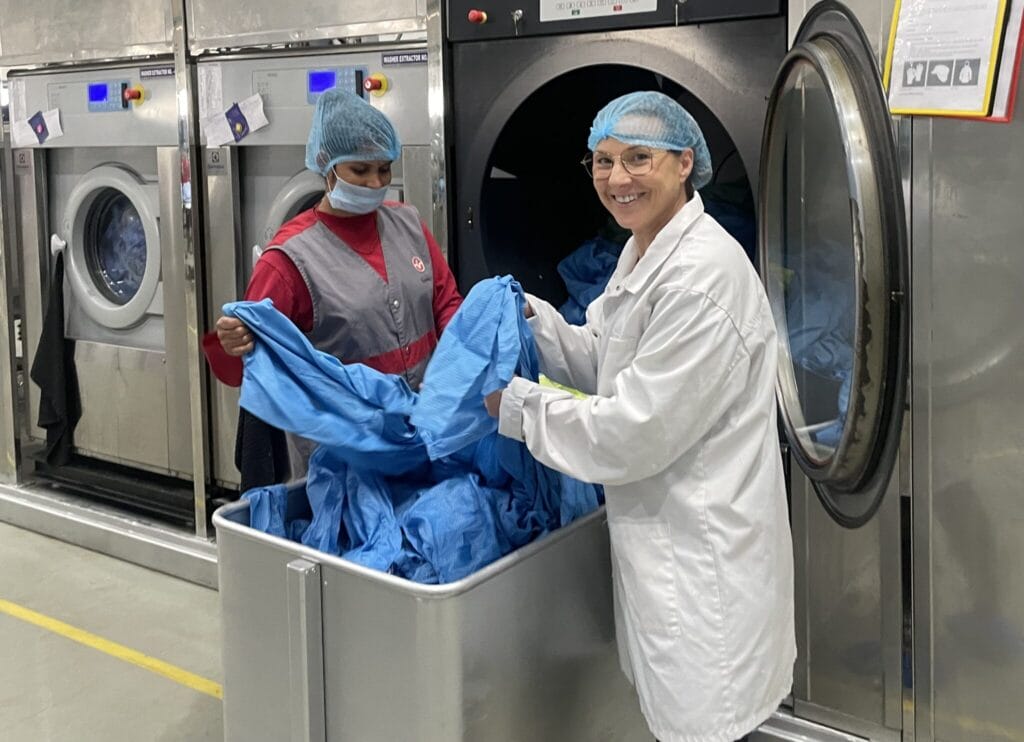
Engaging with customers and suppliers
As we put a lot of resources and investments into sustainability, it is important to understand our customers’ expectations and how we can support them. To benchmark, learn and engage with customers I had the pleasure of meeting several local and international customers, such as Serum Institute of India, BASF Environmental Catalysts & Metal Solutions and Nokia. We discussed water, GHG emissions, and circular economy and shared many targets. It was interesting to learn what can be achieved at the local level and how we could collaborate in the future and support each others’ targets.
The second part of my trip focused on suppliers, covering fabric and garment manufacturing, and recycling our discharged garments. One of the highlights was visiting Bhopal, where the leaders of Vardhman Textiles Ltd. introduced us to how they spin the yarn and manufacture fabrics according to our specifications. It was great to see firsthand their commitment to sustainability such as decarbonising their operations, for example, by installing multiple solar panels. We shared a mutual understanding of the importance of reducing fossil energy and ensuring the wellbeing of the employees throughout the value chain.
Striking moments
In Mumbai I had two striking moments. First, I saw the contrast between local laundry services and our high-tech textile rental facilities. The famous Dhobi Ghat open-air laundry is constructed in 1890 and known as the world’s largest outdoor laundry. The washers clean clothes and linens from Mumbai’s hotels and hospitals in rows of open-air concrete wash pens, each fitted with its own flogging stone. Over 7,000 people work there daily, washing, scrubbing, dyeing, and drying clothes. Dhobi Ghat is a popular tourist attraction and a significant part of Mumbai’s cultural heritage. I would not start comparing the environmental impacts and social responsibility with our own sites, but one may only imagine the differences.
The second sticking moment really impressed me with the enormous positive environmental impact: RiverRecycle combats plastic pollution in the rivers. They operate in seven countries, including India, focusing on collecting and recycling plastic waste and floating debris. Seeing them remove floating litter from Mumbai’s Mithi River before it reached the ocean, and the nearby beaches was incredible. I have been a big fan of this company since it was established in Helsinki in 2019, and I was thrilled to meet the team and see them in real action.
From meeting with local partners to understanding the unique cultural nuances, every moment was a learning experience. The energy and enthusiasm of the people I met reinforced my belief in the potential of this market. The dedication to sustainable practices was evident, though there remains room to enhance these efforts further. I believe that our commitments resonate very well with our customers and suppliers. Together, we can drive the sustainability agenda in India, leading the way for a better future.
